Search
Did you mean: Tulum?
Search Results
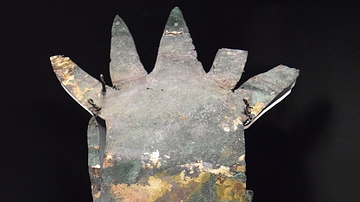
Image
Japanese Gilt Bronze Crown
A gilt bronze crown. Nihon Matsuyama Tumulus, Eiheiji-cho, Yoshida-gun, Fukui, Japan. Kofun Period, 5th century CE. (Tokyo National Museum)
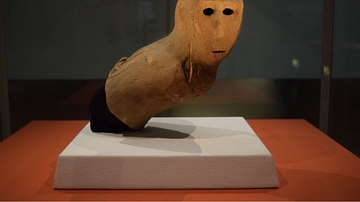
Image
Monkey Haniwa
A terracotta haniwa (tomb marker) in the form of a monkey. 6th century CE, Kofun/Asuka Period. From Dainichizuka Tumulus, Okinosu, Namegata-shi, Ibaraki, Japan. 'Important Cultural Property'. (Tokyo National Museum)
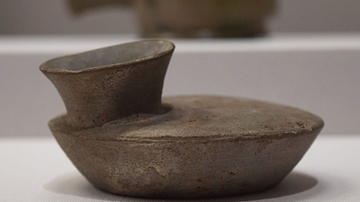
Image
Ancient Japanese inkstone
This inkstone was excavated at Miyahara No. 1 Tumulus in Miyahara, Shizuoka prefecture, Japan. It dates from the 7th century CE, during the Kofun period. (Tokyo National Museum)
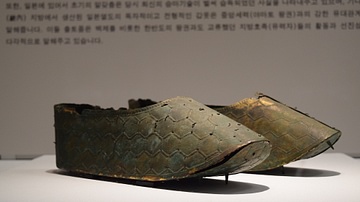
Image
Japanese Gilt Bronze Shoes
Gilt bronze shoes, most likely imports from the Korean Peninsula. Etafunayama Tumulus, Nagomi-machi, Kumamoto, Japan. Kofun Period, 5th-6th century CE. National Treasure. (Tokyo National Museum)
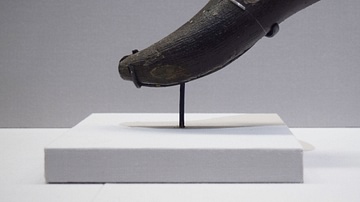
Image
Horn-shaped Vessel from Japan
This ancient horn-shaped vessle was excavated at Shishuzuka Tumulus, which is located in Mihamacho, Fukui prefecture, Japan. It dates from the 6th century CE, during the Kofun period. (Tokyo National Museum)

Image
Warrior Sekijin
A warrior sekijin or tomb marker. Iwatoyama Tumulus, Yoshida, Fukuoka, Japan. Kofun Period, 6th century CE. Important Cultural Property. (Tokyo National Museum).
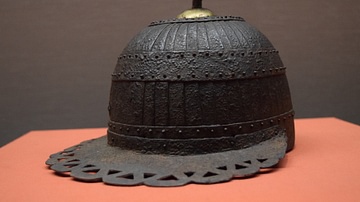
Image
Japanese Visored Helmet
A bronze visored helmet with gilt decoration. From Nihonmatsuyama Tumulus, Matsuokayoshinozakai, Eiheiji-cho, Fukui, Japan. Kofun Period, 5th century CE. (Tokyo National Museum)
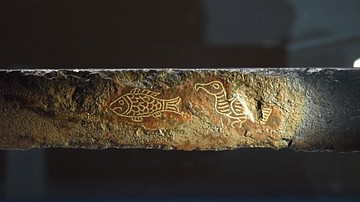
Image
Japanese Inlaid Iron Sword (Detail)
A detail of an inlaid iron sword. From Eta Funayama Tumulus, Nagomi-machi, Tamana-gun, Kumamoto, Japan. Kofun Period, 5th-6th century CE. National Treasure.
Tokyo National Museum.
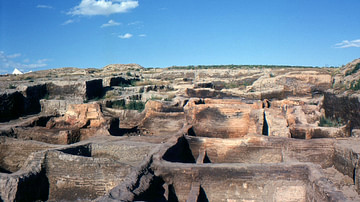
Definition
Ҫatalhöyük
Ҫatalhöyük is one of the largest Neolithic settlements ever discovered. Built more than 9000 years ago in modern Konya Plain, central Turkey, it is known in archaeology as a proto-city, a link between the cave-dwellings of prehistoric hunter-gatherers...
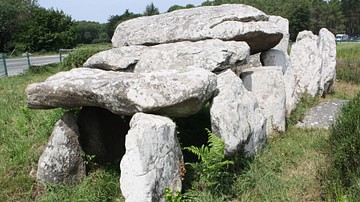
Definition
Carnac
Carnac, located on the north-west coast of France, is the site of the largest concentration of megalithic monuments in the world. Over 100 monuments, which include burial mounds, stone tombs, enclosures, and linear arrangements of menhirs...